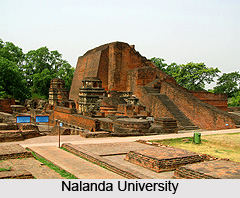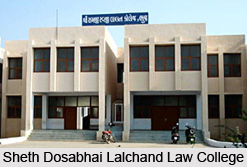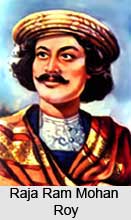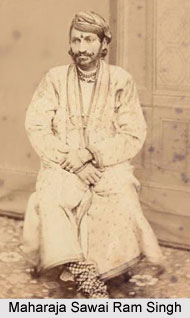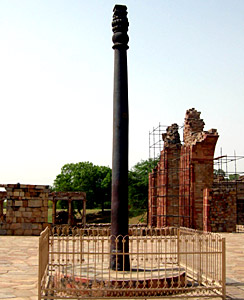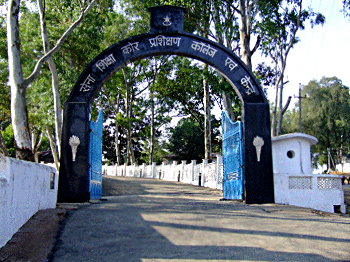Competitive Examinations in India are the route towards gaining safe civil jobs in different sectors like banking, insurance and a list of other similar sectors. Each year a large number of young Indians vie for the Civil Services Examinations to secure their dream jobs in different public sectors. A number of Civil Services Examinations are held in different sectors and each of the examinations has its unique criteria. These competitive examinations also provide a candidate an edge over others. The Competitive examinations differ from the entrance tests as candidates sit for competitive examinations in order to get recruited in any of the civic services, while the Entrance tests are taken by the candidates for seeking admission in their desired professional course.
Competitive examinations in India are held for the recruitment of suitable candidates in most of the public sector organizations. Even if merit is the most vital factor for selection, still it is not the only criteria. The reservation policy or the policy of affirmative action of India attempts to bring in people from every nook and corner of the Indian society. It is for this reason, most of the competitive examination in India reserves 7.5% seats for Scheduled Tribes (ST) candidates, 15% of the total seat is reserved for SC (Scheduled Caste) candidates and 27 % of the total seat is reserved for Other backward classes or candidates. Supreme Court of India has ruled that the total number of reserved seats should not go beyond 50% for all India competitive examinations. Thus, these competitive examinations in India are really functioning as a process of recruitment as well as an effective measure to uplift social justice.
To get a job in the Indian Navy, Indian Air force, Indian Army, civil services and a list of other organizations one need to pass out the relevant competitive examinations. The competitive examinations can be held at different time of the year and at several stages. The criteria of eligibility for the competitive examinations also differ from each other.
Among the competitive examinations in India, the most premium competitive examinations of the country include the Union Public Service Commission or UPSC. The Union Public Service Commission advises the government on matters with regard to framing recruitment rules, principles followed in making promotions, appointments and transfers from one service to another and on matters of discipline affecting civil servants. Some of the examinations conducted under UPSC are Central Police Forces (Assistant Commandants Examination), Civil Services (I.A.S.) Exam, Combined Defence Services (C.D.S.)Exam, Combined Medical Services (C.M.S) Exam, Combined Engineering Services Exam, Geologists Exam, Indian Economic/Statistical Services Exam, Indian Forest Service (IFS) Exam, National Defence Academy (N.D.A.) Exam and Section Officers/ Stenographers (Grade `B`/Grade-I) Limited Departmental Competitive Examination.
Another major competitive exam in India is in the insurance sector. This sector in India is nationalized. A candidate taking this test gets the job in LIC/GIC India. One of the notable competitive exams in India is the Banking Board Exams. Banking in India is among the most profitable sectors. This sector gives and assurance of a well-paid, satisfying and secure career. In the year 1978, Banking Services Recruitment Boards (BSRBs) were established to have a uniform standard & eligibility criteria for the recruitment of personnel to Nationalized Banks. BSRB has now been dissolved. Banks now recruit their employees directly via classified ads. The competitive exams in this sector are State Bank Probationary Officers Exam and Reserve Bank Grade `A` / `B` Officers` Exam.
Railway in India is one of the sectors in which people very much like to get into. The Indian railways are broadly divided and sub-divided into zones, divisions and departments, each controlling a particular function. The highest are the group-A officers, while the lowest in rank are the group-D staff members. Indian Defence Services offer a dignified, lucrative and a prestigious career opportunity. As a part of the Indian Defence Services, one can serve in the Army, Air Force or Navy and so on. There is absolutely no barrier with regard to caste, creed, religion, etc. Some of the competitive examinations which are held for entry in the Indian Defence Services are; Combined Defence Services (C.D.S.) Exam (UPSC), Indian Army Soldiers (Technical) M.E.R. Exam, I.A.F. Airman (Educational Instructors Trade) Exam, Indian Navy Sailors Matric Entry Recruitment Exam, National Defence Academy (N.D.A.) Exam (UPSC), Indian Navy Dockyard Apprentices Exam, Indian Army Soldiers Nursing Assistant`s M.E.R. Exam, Indian Navy Artificer Apprentices Exam, Indian Army Soldiers General Duty (NER) Exam, I.A.F. Airman (Non-Technical Trades) Exam, Indian Army Soldiers Clerks Exam, I.A.F. Airman (Technical Trades) Exam, etc.
The Staff Selection Commission or SSC Competitive Exams in India include Assistants Grade Exam, Combined Graduate Preliminary Exam, Clerks Grade Exam, Combined Matric Preliminary Exam, Income Tax/ Excise Inspectors, Divisional Accountants /Auditors/UDC Exam, Stenographers` Grade `C` Exam, Stenographers `Grade `D` Exam, etc. The University Grants Commission or UGC conducts the National Eligibility Test or NET for the selection of lecturers and research fellows in different streams.
In the competitive examinations in India perspective candidates from each and every corner of the country can compete over the seats available and try to get selected. This examination thus acts as a medium to bring in people from all parts of the country together and works toward the path of national integration. It is for this reason that the Indian constitution has vested the right to Rajya Sabha or the Upper House of Parliament to form All India services.
